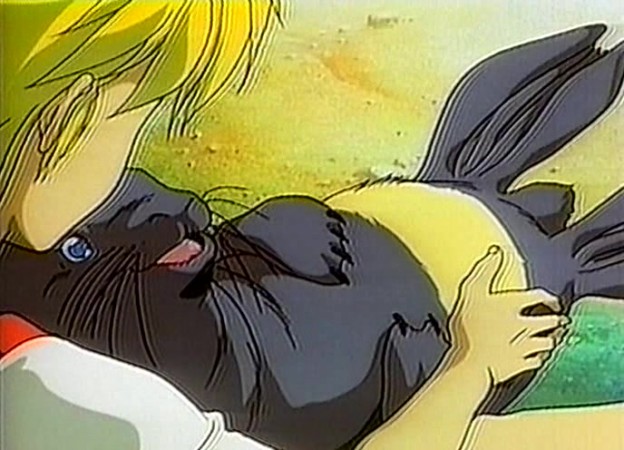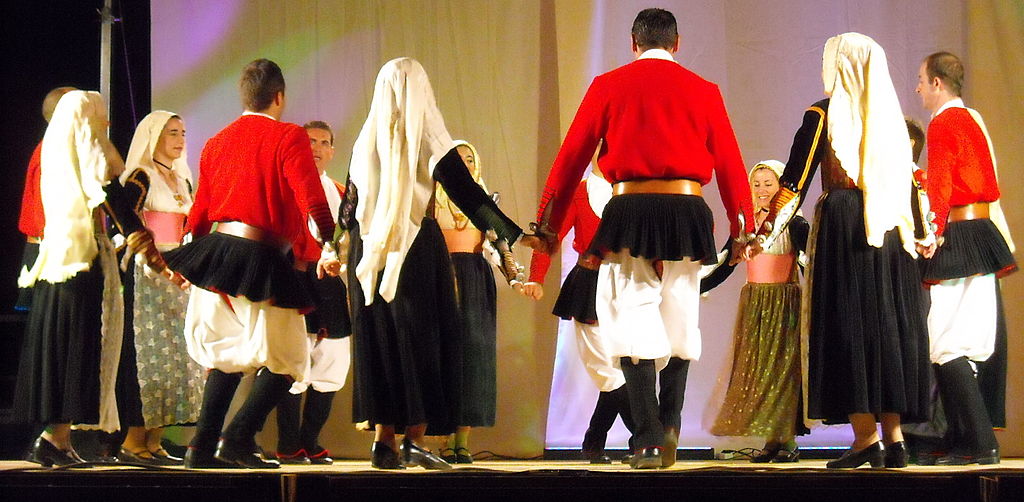Once again Youtube recommended videos led me to a surprising discovery: a short promo for an animated Japanese tv movie whose setting felt oddly familiar, and the characters were having pane carasau for dinner! “Could it be? A Japanese animated movie set in Sardinia?” Yes, it could!
Tottoi is a movie produced in 1992, based on a 1980 novel with the same name by Gianni Padoan. Using a novel as source material wasn’t unusual for anime productions, with the creation of a subgenre of Japanese animation due to the World Masterpiece Theater: a collection of animated series produced annually from 1975 to 1997 and from 2007 and 2009. Even the 1974 series Heidi girl of the Alps, one of Hayao Miyazaki’s first animated works, is based on a Swiss novel! This was a very successful trend at the time, so in retrospect it’s not surprising that Tottoi was adapted into an animated movie. What is surprising though is that, despite Italy’s flourishing love for anime and the very frequent import of series for our country’s television, this movie never got an Italian release. Ironically, it has an English and Spanish official release but it’s relatively unknown in the country of its source material.
The book that inspired the movie was born from the pen of writer and ethologist Gianni Padoan in 1980. He wrote more than a hundred novels known world wide and translated in several languages, winning numerous awards for his works. As an ethologist he studied the behaviour of wolves, meanwhile he had been writer of several television and radio shows, and worked with a few magazines specialized in history.
The film accurately follows the narration of the book: in the 1970s Antonio (Tottoi), a 14 year old kid, lives with his family in Germany. After his mother’s death, his father decides to go back to his native town in Sardinia to raise his two children in a healthier environment. So Tottoi and his little sister discover Dorgali and the maritime village Calagonone. During an exploration of the caves of Bue Marino, Tottoi finds a Mediterrean monk seal. This animal was believed to be extinct, but this specimen came back to the cave to give birth to a seal pup on a beach inside the cave. Accompanied by a local naturalist, Tottoi manages to befriend the seals, calling the newborn Zabaione (Eggnog) due to a yellow spot on the belly. Through the course of the film Tottoi and his friends defend the seals from an American business man that wants to capture them for his zoo in Florida.
 |
| A Mediterrean monk seal |
 |
| The seal Zabaione in the film |
The film keeps the book’s message of protection and preservation of the environment, representing very accurately the Sardinian landscapes and traditions such as su ballu tundu, a traditional dance that has numerous variants of choreography according to the specific area of Sardinia, but they all have in common the fact of dancing in group in a circle.
 |
| Picture of folk group Ittiri Caneddu shared by Cristiano Cani |
The film was produced by Nippon Animation, the same studio that produced the World Masterpiece Theater mentioned earlier, and it aired in 1992 on the television channel NHK. The feature film was dubbed and aired in English and Spanish respectively with the titles The secret of the seal and El secreto de la foca. The film has been unknown in Italy until 2012, when the project of a class from the middle school of Dorgali provided an Italian dub. The students lent their voices and the result is a peculiar Italian version that includes expressions in Sardinian. The film was presented on March 17th 2012 at the municipal theater of Dorgali during the film festival Cinema Musica Ambiente Società organized by the municipality with the participation of the Department of Culture of Region Saridinia.
It’s a shame that an official dub doesn’t exist, but the project by Dorgali’s middle school is a very admirable initiative that finally allowed this film to be known in the country of origin of its story.
Here is the full movie dubbed in English, enjoy!
No hay comentarios:
Publicar un comentario